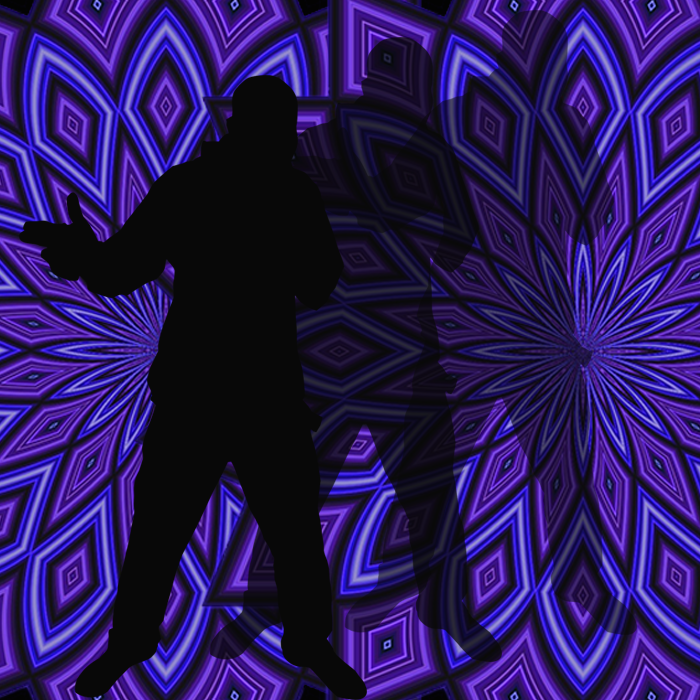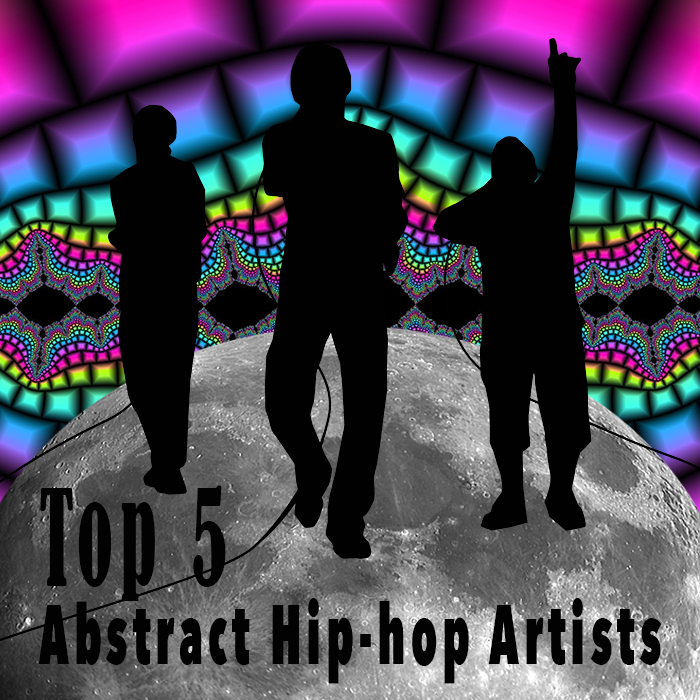Hip-hop is a many-headed beast. It’s incredibly hard to say what hip-hop is anymore, because the artists that rep the genre are as different from one another as they are plentiful.
From the early days of hip-hop with the Sugarhill Gang and Grandmaster Flash and the Furious Five to the bodacious Atlanta trap hip-hop artists of Waka Flocka Flame and OG Maco, it’s arduously difficult to tell where hip-hop begins and ends as a genre. Its malleability is impressive and perhaps what makes hip-hop as unique and multi-faceted as it is.
Regardless of artist or subgenre, the quintessential essence of hip-hop is pervasive, even to the point of the most abstract and near-lunatic artists that dwell in the pulsating underground scenes of Los Angeles, Chicago, and New York. These are the artists that have remained as close to the original formations of hip-hop and the culture that surrounded the early days of the underground. Their music has advanced with the technology available and the constantly morphing culture in which they are present, but their creations are a testament to the versatility of hip-hop without forgetting its roots. They deserve recognition for their refusal to betray the hip-hop scene.
5. Sage Francis
In the religion of underground hip-hop, Sage Francis is the abbot of the monastery. His build and demeanor reflect the part well. Sage’s lyricism borders on spoken word, deviating from the typical rhyme scheme while not sacrificing his flow and veracity. While Sage Francis is certainly not the most appealing artist, with topics ranging from socio-economic issues to identity disorders, his ability as an artist sets him apart from others flooding the underground.
4. Milo
Milo is the young gun of hip-hop. At 23 years old, Milo began to collaborate with the esoteric unit Hellfyre Club, comprised of veterans such as Nocando, Open Mike Eagle, and Busdriver (see below). After releases such as Milo Takes Baths, The Cavalcade, and Things That Happen At Day/Things That Happen At Night, Milo debuted his first full-length album entitled A Toothpaste Suburb, in which he details the struggles with his own identity as a young black man with an obsession with archetypal nerd culture and a love for philosophy. A Toothpaste Suburb features artists outside of Hellfyre Club alumni such as Kool A.D. from Das Racist.
3. Busdriver
I can’t even begin to explain how odd Busdriver is. I don’t know if it can truly be defined as hip-hop, but if we’re going to label this enigmatic artist as such, then he is undoubtedly skirting along the edges of the genre like a sideshow attraction that is truly set out to become the main event. When I first heard Busdriver on his 2005 release Fear of a Black Tangent, I wasn’t sure what I was listening to. I wasn’t sure if I liked it, and I’m still not entirely sure that I do.
Regardless of Busdriver’s abstruse style, it would be an insult to the underground hip-hop scene to not include him somewhere in this list. He isn’t for everyone, but he is most certainly for hip-hop.
2. Yoni Wolf of Why?
Yoni Wolf is a personal favorite of mine. Some of my fondest memories of are listening to his early tracks from Oaklandazulasylum. Why? came to my town two years ago and put on one of the best shows that I’ve ever had the privilege to see. Yoni’s lyrics have a majorly poetic quality to them. His strange appearance and background make him fall far outside of the boundaries of typical hip-hop, and his musical style borders on (if not resides within) indie rock.
Nonetheless, Yoni is a rapper, tried and true. His style is unique, accompanied by nasal inflections and strange post-adolescent reminiscing, but what Yoni says is what’s most important. His lyrics reach out to the individual and grab them by the heart strings. He’s more than a rapper; he’s an author, and in his authorship he tugs at what makes a person a person and exposes himself as a raw, real human that a listener can relate to, not an enigma shrouded behind a false persona.
1. Aesop Rock
Aes is a god among mortals. I don’t know if anyone has ever referred to Aes as the James Joyce of Hip-Hop, but I’m coining that now. His lyrics are immensely abstract and poetic. Nothing can be grasped on the first go-round, and even after years of heavy listening and adoration of his work, I still have no idea what the hell he’s talking about in most of his songs. Some are clearer than others, such as Ruby from his most recent solo release Skelethon, but most, like Anti-Social from his debut album Music for Earthworms, are abstract to the point of confusion.
Aesop Rock doesn’t reside within the world of abstract hip-hop; he transcends it into near indecipherability (it’s a word now). His work is arcane, and while many critics claim his words are meaningless and purposefully complex for its own sake, it’s evident given the time to listen that Aes is a rapper who chooses his words carefully, and in turn, each album presents itself as a newly intricate and complex magnum opus. Aes, like Joyce, is a timeless artist.
Trey is a senior English literature major at the University of Georgia and is planning on entering an MA program next Fall. He enjoys turgid literature, bar food, cheap beer, and black coffee.


